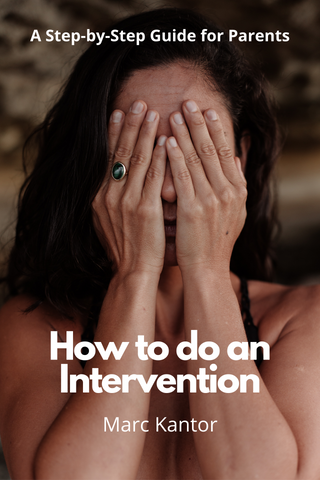Ending the Merry-Go-Round of Relapse
I entered rehab for my addiction to alcohol and prescription pills in 2004 at just 32 years old. At the time I was completely beaten down from a decade of alcoholism and drug addiction; It was my first attempt at getting sober and I didn’t know what to expect in treatment.
It surprised me to discover some of my fellow patients had been to treatment before - in fact, some of them had taken numerous attempts at sobriety at other rehab centers. One of the men in my therapy group even shared about his difficult decision to allow his ex-wife’s husband to adopt their children. This was all because he could no longer ensure their welfare if something happened to her. I was stunned by the unimaginable consequence of his unrelenting heroin addiction.
An older man - heavily worn from years of drinking - said it was his ninth treatment. He eluded that if it didn’t work this time, he would most likely die within a couple of months from his alcoholism. Being in emotional and physical distress I struggled to imagine myself going through this so many times. Coming home was equally as difficult; I often found myself in a persistent state of anxiety-ridden paralysis.
I started working as an interventionist as a side job when I was eight years sober. I decided to pursue my passion full time when I relocated to South Florida in 2018. Since then, I have worked with an increasing number of people who suffer from addiction.
I meet a lot of families who are desperate for solutions. Often many are burned-out from years of lies and broken promises. This leaves me reflecting on the chronic relapser I had first encountered years earlier. An alcoholic or addict who remains on a never-ending merry-go-round of rehab and relapse. Leaving their families’ hopes of lasting recovery repeatedly dashed with every missed chance of grabbing the brass ring.
Beginning in the late 1990s, the opioid crisis, which kills 130 people per day in the US, has increased our desperation to find answers. Compared to other drugs - heroin is extremely lethal as the drug’s potency can range wildly on the street. Heroin could kill a user every time of use, regardless of the addict’s longevity of use.
Professionals in the recovery space are scrambling to find effective solutions for people who continue relapsing by offering new therapeutic models, however, as it turns out, the best chances for success may simply be time.
Research shows it takes one year for a person's brain to recover from the damage caused by active addiction, and, therefore, keeping people in treatment longer may be the way forward for those struggling to end their pattern of relapse.
Knowing this makes finding the appropriate treatment setting all the more important. The average treatment stay is 30 to 90 days. Places like Alina Lodge, which is located an hour from New York City, are unique because of their ability to treat clients based on their individual needs.
Their treatment philosophy is based on spiritual transcendence, rather than a predetermined curriculum. This is rarely achievable in a shorter program.
It is widely accepted that addiction is symptomatic of an underlying spiritual malady, which leaves affected people feeling like something is missing from their lives. In recovery circles, this is often referred to as the God-sized whole. Alina Lodge teaches its students to fill their emptiness with esteemable acts and connections to other people rather than drugs and alcohol.
Time is essential in breaking down defense mechanisms addicts have in place that keep them from recovering. Ask any parent with an addicted child - addicts are often masterful manipulators who will use their skills to fake their way through treatment. The problem being many start again using as soon as they leave the treatment center.
According to Alina Lodge’s Bill Robbins, it is not unusual for a client to be there for six or seven months, before accepting the fact they can't fake sobriety again. The same client placed in an alternative program may never get the opportunity to put an end to their addiction. This occurs when an addict leaves the facility too soon before having this essential breakthrough.
Marc Kantor is the founder of South Florida Intervention which helps families struggling with the devastating effects of addiction. He can be reached at marc@southfloridainterverntion.com.

Download Free Guide: How To Do An Intervention
GetHelpForAddiction.com
